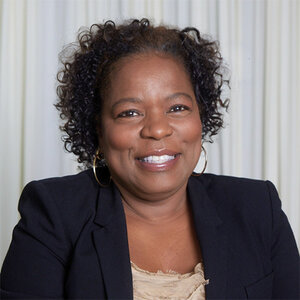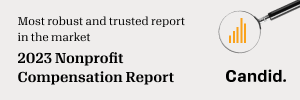Melissa A. Berman, President and CEO, Rockefeller Philanthropy Advisors
October 25, 2022
Dr. Melissa A. Berman has led Rockefeller Philanthropy Advisors (RPA) since its inception 20 years ago. Today RPA is a leading philanthropic advisory offering grantmaking, research, and project management services—advising on and managing over $500 million annually in dozens of countries. RPA also houses more than 100 fiscally sponsored projects designed to drive change in issue areas including social justice, climate, gender and economic equity, education, and the arts. She currently serves on the Candid’s board of trustees, having joined Foundation Center’s board in 2015. Berman is also on the advisory councils for the Marshall Institute at the London School of Economics and the Tamer Center for Social Enterprise at Columbia Business School.
Last week, Berman announced that she planned to step down in 2023. Philanthropy News Digest asked her about her accomplishments and challenges in her work at RPA, the most important changes in philanthropic practice in the last 20 years, and the growing role of fiscal sponsorship in the sector.
Philanthropy News Digest:You've led RPA from its inception to its current position as one of the most prominent philanthropic advisories in the United States. What was your vision for RPA at its founding, and have you achieved it?
Melissa A. Berman: When the Rockefeller family decided to launch what’s become Rockefeller Philanthropy Advisors out of their family office in late 2000, we were in something of a second golden age of philanthropy spurred by new wealth—the [Bill & Melinda] Gates, [Gordon and Betty] Moore, Turner, [David & Lucile] Packard, and [William and Flora] Hewlett foundations took their size and shape around then. One simple question framed how I thought about the potential for RPA: What can we do to ensure that this flow of resources nurtures the ground it flows over rather than flooding and devasting the earth?
Very few models for how to answer that question were out there. For RPA, the enduring values of Rockefeller philanthropy helped guide us: respecting the nonprofit sector; focusing on values not views; taking a long-term, global perspective; and committing to good governance.
The Rockefeller family engaged philanthropy professionals from the 1890s on, and we wanted to build a professional, knowledge-based approach to this work. Our mission statement focused on “thoughtful, effective philanthropy” for that reason. We also wanted to build understanding that a thoughtful approach to philanthropy improved effectiveness, and so we also committed from the start to developing and sharing insights.
I still think about that metaphor of the nurturing stream vs. the flash flood, and I think it’s helped RPA focus on the whole landscape, on lasting relationships and on sustainable progress as opposed to a shiny short-term solution.
PND: What is the greatest challenge you've faced during the 20 years you’ve led RPA?
MAB: All of us in philanthropy have been challenged by the sharp traumatic shocks of the past 20 years including—but alas, not limited to—9/11, genocides and wars, human-intensified natural disasters, the Great Recession, COVID, George Floyd’s murder, polarization, autocracy. Each of these shocks upend our sense of how the world works. We all—not just at RPA—question what our role has been in creating the problem, and what it should be in the solution.
The other kind of challenge is more constant but of course closely related: How do we know “what works”? What do we even mean by what works? Over what period of time? What does it mean to “save” a life? The late [Partners In Health co-founder] Paul Farmer famously said he could get funding to cure people of tuberculosis so that they’d die of malnutrition instead.
How do we know “what works”? What do we even mean by what works? Over what period of time? What does it mean to “save” a life? The late [Partners In Health co-founder] Paul Farmer famously said he could get funding to cure people of tuberculosis so that they’d die of malnutrition instead.
I teach a class on global philanthropy at Columbia Business School every year. And I start by pointing out to these future MBAs that philanthropy tackles “wicked problems,” the kind that don’t have an agreed-upon definition (What’s poverty?) or solution (What would a healthy community be?). That means that outcomes are disputed, and that getting clarity on long-term impact is hard to come by. As a result, RPA and our peer organization still face skepticism about the idea that philanthropy is field with a knowledge base not only about issues but also about best practices.
At RPA we’ve tried to be clear about what we mean by an outcome—like better scores for kids on math tests—as opposed to the real impact we seek: All kids get the kind of quality education that can change the trajectory of their future. And we tried to be clear about how using an equity and justice lens can reframe the questions, the power dynamics, and the potential solutions. That’s now an important core of our work.
PND: What are the most important changes you’ve seen in philanthropic practice over the last two decades—in terms of long-term, broad-based change across the sector? What about in terms of as yet emerging trends that you see potentially changing the sector going forward?
MAB: Over the past 20 years we’ve seen the emergence of a global culture of giving. For the elite, being not only generous but engaged in the issues is an expectation that spreads from their peers around the world. More broadly, the power of the internet along with global movement inspires many to connect with what’s happening outside as well as inside their home communities—especially digital generations—to get involved in using all their assets for good now rather than waiting until late in life.
Second, more and more donors are willing to make big bets on big issues. Increasingly that means they’re also willing to partner with other funders to get to scale and to share knowledge.
Over the past 20 years we’ve seen the emergence of a global culture of giving. For the elite, being not only generous but engaged in the issues is an expectation that spreads from their peers around the world.
Third, new tools like impact investing, social media and social entrepreneurship create new avenues making change happen.
What’s emerging now is also exciting: a period of thoughtful reexamination of how capital and capitalism can (or can’t) work; how power and privilege should (or shouldn’t) be exercised; how tax policy might (or might not) work; how trust, respect, reparations, justice, and equity can be achieved.
PND: One of RPA's focus areas is impact investing. How would you characterize the evolution of impact investing over the last 20 years? How have attitudes toward impact investing changed? Are you optimistic about its growth trajectory?
MAB: RPA published its first guide on impact investing almost 15 years ago. We’re thrilled by how much progress has been made in the field. If you look at a matrix of issues, like health or education or financial inclusion, and investment types, like venture capital, fixed income or public companies, the cells are all filling up with opportunities. Impact investing isn’t dismissed any more as starry-eyed optimism. Its growth trajectory is solid, and will accelerate as younger generations have more assets.
PND: RPA has expanded to become a fiscal sponsor for more than 100 projects including in the areas of social justice, climate, gender and economic equity, education, the arts, and rights and equity. How important a role does fiscal sponsorship play in the sector, and is that role growing?
MAB: Fiscal sponsorship has emerged as a powerful, flexible tool both for funder collaboratives and for testing innovative programs. For funder collaboratives, it offers an effective, efficient way to pool resources—financial and knowledge-based. Funder collaboratives under the aegis of a fiscal sponsor can make it easier to get community input engage in trust-based philanthropy. Post-Katrina, for example, we managed a funder collaborative in the Gulf Coast that empowered community leaders with grantmaking decisions.
Fiscal sponsorship has emerged as a powerful, flexible tool both for funder collaboratives and for testing innovative programs....Funder collaboratives under the aegis of a fiscal sponsor can make it easier to get community input engage in trust-based philanthropy.
For innovative initiatives, fiscal sponsorship provides a way to get underway quickly and test ideas in the field without having to stand up a lot of infrastructure. As an employer with staff in dozens of countries, RPA can engage employees for sponsored projects almost anywhere in the world.
Fiscal sponsorship is growing quickly in the United States, and we hope to help it grow in other parts of the world in the coming decades.
PND: Your bio says you are “proud to have majored in Folklore and Mythology.” Why? Does your academic background contribute to your work, and if so, how?
MAB: Around the world, people relish tales, legends and myths as a way of sharing the truths that their culture holds dear. I’ve always asked people to tell me their stories, and that helps me see their truths. And as philanthropy talks about narrative change and storytelling, I’m on familiar ground. It’s also great to understand that tales, legends and myths carry different kinds of truth – and of course that they may not be true for all times and all people. Finally, studying folklore and mythology meant I learned a decent amount about the past. So when someone tells me, “This has never happened before!” I often think—though I rarely say it aloud—“Not so much….”
—Kyoko Uchida





